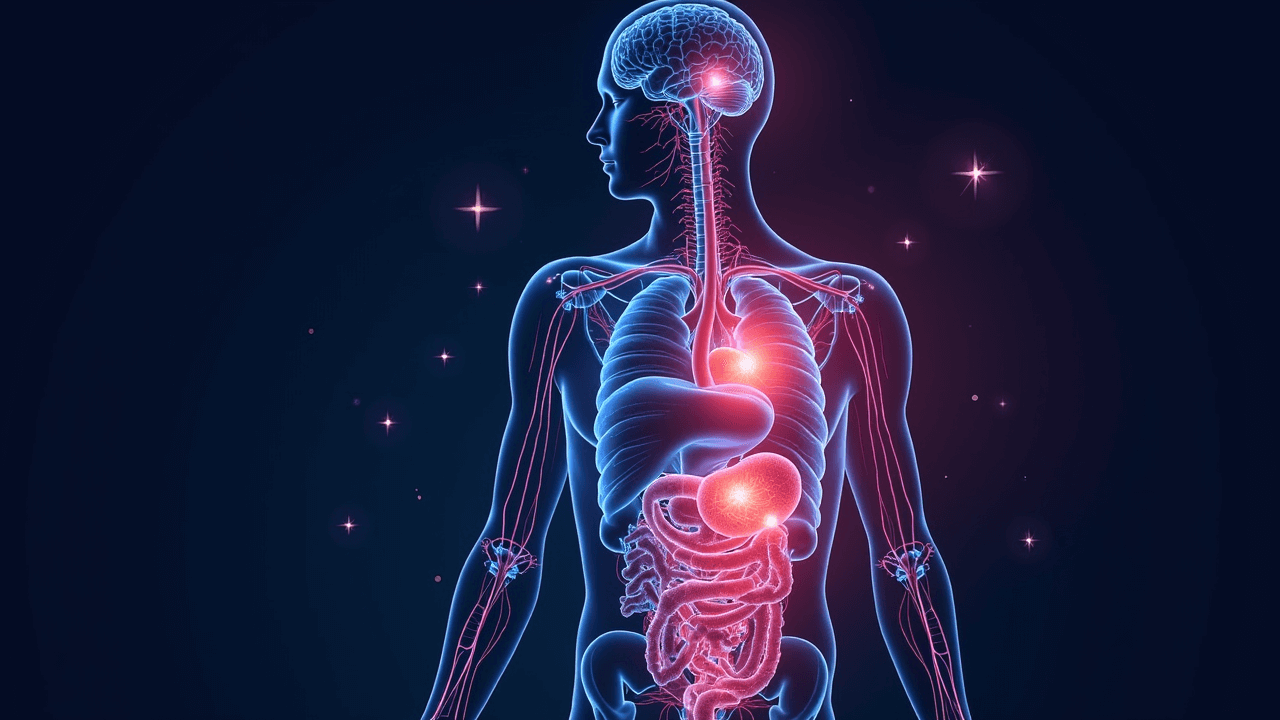Okay, so again, you can, like, totally feel when you need to pee, right? Like you can feel that release when you go. Can you actually, like, feel your bladder itself? It’s so weird. It really is one of those things you don’t think about, right? Like it’s this phantom organ, just like doing its thing. I was thinking about this the other day, and, well, turns out I’m not alone. It’s a question that seems deceptively simple, but it really does touch on some pretty fascinating aspects of how our brains are wired.
Understanding Our Brain’s Filtering System
How Does Our Brain Filter Internal Sensations?
Exactly. And to really unpack this, we took a deep dive into some interesting discussions, where else? Right? It’s like we’re these walking, talking ecosystems, but we have like, zero awareness of most of what’s going on in there, right? So, like, the top comment in this discussion just went straight for the sensory overload angle. Like, imagine if you could feel every single process happening inside you all the time. Oh, man, talk about information overload. That would be way too much. Seriously, our brains are actually designed to, like, filter all that information out. They have to prioritize what’s immediately important for survival. Makes sense.
Prioritizing External Over Internal Sensations
Like, I’m guessing a speeding car is probably a more urgent matter than, like, feeling your spleen doing, like, whatever it is, spleens even do exactly our brains evolve to focus on change and, you know, potential threats in the external environment. Okay, so something’s functioning normally on the inside our brain kind of just, like, tunes it out unless there’s a problem, yeah. Like, hello, pain. Pain is a great way to get our attention.
The Role of Pain in Internal Awareness
Why Pain is Essential for Internal Awareness
Exactly. Pain is like the body’s alarm system. It’s your organ’s way of saying, hey, something’s wrong here. Pay attention. It’s like the check engine light for your insides, exactly. But what’s interesting is that even pain isn’t always a perfect indicator. Think about like a stomach ache, it can be really hard to pinpoint the exact source of the pain because those internal signals aren’t as localized as the signals from your skin, for example.
External vs. Internal Pain Signals
Oh, that’s so interesting, right? So it’s like our brains prioritize those external senses that help us navigate the world around us, and all the internal stuff is like on a need to know basis precisely. And this actually relates to a point that someone brought up in this discussion about people with autism. They were saying that many autistic individuals experience, you know, sensory overload because their brains don’t filter out as much sensory information.
Sensory Overload and Autism
How Autism Affects Sensory Processing
That’s right. And there’s actually research that suggests that autistic brains might process like, up to 40% more sensory data than neurotypical brains. Wow, it’s huge, and it really makes you realize how much our perception of reality is shaped by our brains. It’s just like constantly filtering out what it deems unimportant, absolutely. And it makes you wonder, what is that experience like to have that constant stream of information?
The Impact of Sensory Overload on Daily Life
Right? Like, thanks brain for keeping me from constantly feeling my own heartbeat. That would be a lot. But on the other hand, like, what if we could tap into that internal world a little more?
Exploring Altered States of Consciousness
What Happens When We Alter Our Sensory Perception?
Well, speaking of tapping into the internal world, there was this really interesting anecdote in the discussion about someone who ate a THC gummy. Okay, so we’re talking edibles altered states of consciousness, right? Always a recipe for, like, interesting sensory experiences, totally. So this person said that after eating this gummy they could, like, feel all their organs squishing and, like, moving around. Oh, wow. They said it was actually really unpleasant.
The Unpleasant Side of Increased Internal Awareness
Yeah, I can imagine sensory overload times 1000. I think I’m good with my brain’s carefully curated highlight reel of internal sensations. It is amazing, though, right? This person’s experience, while not exactly, you know, desirable, it gives us a glimpse into just how much our brains normally just edit out, right? And it makes you wonder, like, what’s the potential there? Could we, you know, could we learn to control those sensations? Maybe even like, I don’t know, harness them for good.
The Potential of Enhanced Internal Awareness
Can We Harness Our Internal Sensations?
That’s a fascinating thought, and it actually ties into another point from the discussion about how, like, we do have internal sensations. It’s just that they’re not always about, you know, precise touch, like we experience on our skin. It’s more about pressure and discomfort.
Understanding Internal Sensations Beyond Touch
Exactly. Think about it. You don’t really need to know the texture of your spleen, right? Just whether or not it’s unhappy, right? Our internal sensory nerves are more like, hey, something’s going on in here, not necessarily, you know, giving us a detailed map of what’s happening, yes, and there’s a great example of this in the discussion: the belly button phenomenon.
The Belly Button Phenomenon
What Causes the Strange Sensation in the Belly Button?
You mean that weird feeling you get when you touch the inside of your belly button, like, what is even in there exactly? Feels so strange. It feels strange because our internal touch perception is so poor, and our brains are kind of confused by the sensation. It’s true, like our brains are like, Wait, there’s supposed to be stuff there, not open air. Right? Our brains just aren’t used to processing that kind of internal touch.
The Confusion of Internal Touch Sensations
Yeah, and this difference in sensory perception, you know, it actually relates to the two different nervous systems we have, the somatic and the autonomic.
The Two Nervous Systems
Somatic vs. Autonomic Nervous System
Okay, two nervous systems. This is getting interesting. I definitely did not learn about this in school, or maybe I did, but my brain decided it wasn’t important enough to remember. Well, it’s kind of like having, like, two separate watering systems in your body. So the somatic nervous system that’s all about the external world, okay? It controls like, you know, voluntary movement, like moving your arm, right? And it processes external sensations, like, you know, touch, temperature, pain. So basically, all the things that we’re like, conscious of and can actually control.
The Role of the Somatic Nervous System
Exactly, then you have the autonomic nervous system, okay? And this one is more about the like, the behind the scenes stuff. So like, regulating your internal organs, your heart rate, digestion, all those automatic functions, because that’s why we can, like, pinpoint a mosquito bite on our arm, thanks to our trusty somatic system, but like a stomach ache can feel like this vague discomfort, because our autonomic system is just like something’s up down there, but it’s not giving us the specifics we got it, and it’s also why we can, you know, we can consciously decide to move our arm, but we can’t just will our intestines to do a dance, which, let’s be honest, that’s probably for the best.
The Autonomic Nervous System Explained
Why We Can’t Control Our Internal Organs Consciously
Can you imagine the chaos if we could consciously control all of our internal functions, right? Oh, my God, walking into walls and stuff, it would be a mess. But it does make you wonder, what if we could tap into that autonomic system a little more? What if we could learn to like better sense those subtle, like, internal cues.
Tapping into the Autonomic System
The Possibility of Enhancing Internal Sensations
That’s a pretty wild thought. Imagine being able to like sense when you’re getting sick before any symptoms even appear. Oh, right. Or like being able to calm your heart rate down just by like, thinking about it, right? Okay, now we’re getting into, like, some serious mind over matter territory, but it’s such a fascinating idea, right? Like, what if we’ve only, like, scratched the surface of what our bodies are capable of, you know, sensing and controlling?
The Potential Benefits of Enhanced Internal Awareness
It really makes you think about the potential for healing self-awareness, but it also raises some, you know, some interesting questions, right? Like, is it actually a good idea to be like that in tune with our insides? Would we just be, like, constantly hyper-aware of every little gurgle and groan? Because, I mean, I’m already the queen of, like, catastrophizing a headache. Totally. That’s the big question, isn’t it? Like, would this kind of access to our internal world actually empower us or just make us more anxious? It’s like, imagine if you could feel every like spike and dip in your blood sugar throughout the day.
Balancing Awareness and Anxiety
The Pros and Cons of Increased Internal Sensitivity
Okay, yeah, that sounds a little intense. Maybe ignorance is bliss when it comes to certain internal functions, right? But then, like, on the other hand, think about the possibilities.
Potential Advantages of Being More In Tune with Our Bodies
Exactly. What if we could use that awareness to, like, detect health problems way earlier? Oh, wow. Or even, like, manage chronic pain by learning to, you know, consciously regulate those sensations. It’s like we’re so used to thinking of our bodies as these separate entities. But what if we could, like, bridge that gap between mind and body in a whole new way?
Bridging the Mind-Body Gap
Exploring the Connection Between Mind and Body
It’s such a fascinating idea. And there are actually, like, some promising developments. It feels like, you know, biofeedback and mindfulness stuff like that. That suggests we actually might be able to tap into some of these capabilities. Wow, but it definitely raises more questions than answers. It really does. It always seems to be that way, doesn’t it? We start with this, like, simple question, why don’t I feel my insides? And somehow we end up, like, down this rabbit hole of brain science and evolution and the nature of consciousness itself.
The Ongoing Exploration of Internal Sensations
That’s the beauty of curiosity, though, right? It takes us to the most unexpected places. But, you know, even if we don’t have all the answers, I think this deep dive has given us like, a newfound appreciation for the, you know, the amazing complexity of our own bodies. Totally. Like our brains are doing all this incredible work behind the scenes, filtering, prioritizing, keeping things running smoothly without us even having to, like, think about it. It’s incredible. Maybe, just maybe, there’s even more potential there than we realize.
Appreciating the Complexity of Our Bodies
Exactly. So the next time you, like, feel your stomach rumble or whatever, just like, take a moment to, you know, appreciate the intricate symphony of sensations happening inside you, and maybe even, like, ponder the possibilities of what we might be able to achieve if we could, you know, unlock those secrets. Ooh, I love that our bodies are full of these hidden wonders just waiting to be explored. And who knows, maybe one day, we’ll be able to have a whole different kind of conversation about what it means to feel our insides. But until then, you know, keep asking those curious questions, and we’ll be here to dive into them with you.
FAQ
Can we feel all our internal organs all the time?
No, our brains filter out most internal sensations to prevent information overload. We typically only feel internal organs when there’s an issue, like pain.
Why is pain an important internal signal?
Pain acts as the body’s alarm system, alerting us to potential problems within our organs, much like a check engine light in a car.
How do autistic individuals experience sensory information differently?
Autistic individuals may experience sensory overload because their brains don’t filter out as much sensory information, processing up to 40% more data than neurotypical brains.
What are the two nervous systems that manage our sensations?
We have the somatic nervous system, which handles external sensations and voluntary movements, and the autonomic nervous system, which regulates internal organs and automatic functions.
Can we enhance our ability to feel internal sensations?
While it’s a fascinating idea, enhancing internal sensations could lead to both benefits, like early detection of health issues, and drawbacks, such as increased anxiety. Research in biofeedback and mindfulness suggests some potential.
Your Hosts

Alex & Maria
Join Alex Thompson and Maria Davis as they navigate the fascinating world of knowledge. With their combined expertise and passion for learning, they simplify the complex and make every episode a journey worth taking.

